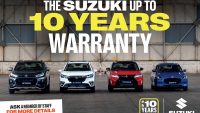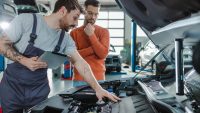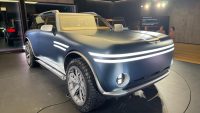Up until the time of writing, I’d thankfully avoided contracting Covid, but with two young children at home and a teacher for a wife, there was always a sense of inevitability that we’d all catch the virus.
Luckily, thanks to the miracle of science and resultant three jabs, my wife and I are fine except for the kind of cold that historically would have seen us go to work, and the kids have barely been affected.
Like many, I had really feared the virus, particularly in those pre-vaccine days.
Initial images of healthy people in wards in Italian hospitals and, latterly, firsthand knowledge of people who either perished or were severely affected resulted in our family modifying social behaviours; not to the extreme but certainly to a degree which we felt boosted our chances of avoiding catching it.
It is likely that in the coming weeks and months, we will see the status of Covid-19 move from pandemic to endemic and we’ll all have to adapt to life with a new omnipresent virus.
I’m not sure I feel entirely comfortable about a future where I don’t wear a mask on a plane or in a shop.
One of the fringe benefits of social distancing and wearing masks is that I have barely had any viruses at all.
Immunologists may argue that this isn’t a natural state, but if the ends justify the means, who am I to complain?
The crucial thing for governments, businesses and individuals is how they plan for future crises and react when they happen.
Motor manufacturers have had recent warnings from environmental disasters such as the 2004 Boxing Day tsunami and 2011 Japanese earthquake, but many were caught out by a lack of supply chain resilience as a result of Covid-19.
Now is the time to marry the future of EVs to a more dynamic, localised supply chain that not only has more resilience to future global catastrophes but has less environmental impact as well.
It still makes me chortle to read how the retail motor industry has been forced online by both the pandemic and disruptor entrants to the market.
As I’ve written before, car dealers have been selling cars online for decades; it’s just become more accepted on behalf of consumers that this is the way to do it.
However, now is the time to embrace all aspects of the consumer online buying journey and to structure retail business accordingly.
This doesn’t mean traditional sales executives being given different titles and asked to do two live videos a day.
This is about new car agency sales models, part-time sales staff who are dedicated to customer experience and nothing else, aftersales businesses that embrace £60-per-hour labour sales, and parts businesses that look for more than just the internal client.
This column appears in issue 167 of Car Dealer, along with news, views, features, reviews and much more! To read and download it for free, click here.
- Join our breaking news WhatsApp group
- Listen to the latest Car Dealer Podcast
- Read the latest issue of Car Dealer online now


































